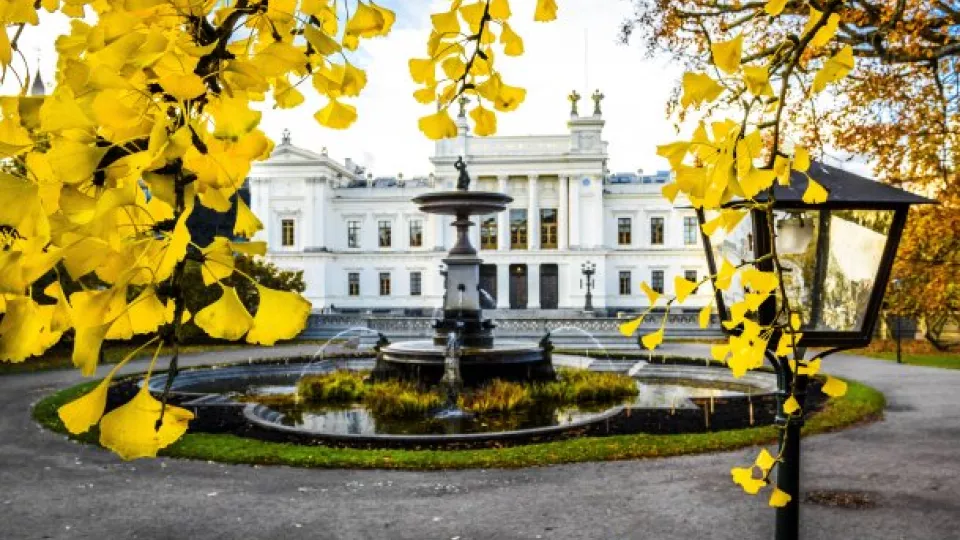Professor Emily Boyd comments on the event on the theme of “sustainability in education”, on 18th October organised by Sustainability Forum and LUCSUS. The aim is to discuss how Lund University can become more sustainable – and all staff and students are encouraged to join.
She says that a sustainable university – where sustainability in education is one piece of the puzzle - is closely linked to questions of leadership and governance. A leader at the university needs to have a developed understanding of how world events can impact on education and research – and should be able to take a lead in disseminating solutions and ideas to the outside world.
– Clear goals and visions for how to create a sustainable university is also key. Without setting objectives, and following them up, it is very difficult to actually transform behaviours and university processes, she says.
The university structure, with a decentralised governance model, and strong autonomy leaves the opportunity for groups to develop local sustainability solutions in education.
– I do think there are many areas in which the university shows leadership, both when it comes to implementing sustainable practices and working with the society, but more can be done to join up LU sustainability vision and decentralised processes by collective efforts.
– LU could for example commit itself to a target to reduce emissions so that we are aligning with the goals set out in the Swedish Climate Act which will come into effect in 2018. That would send a clear message that we are committed to driving transformation.
She also emphasises that sustainability is about more than only the environment, it also encompasses social, economic and fairness dimensions. Therefore, it is as important for the university, and for its leaders, to set goals around gender and diversity, social impact and financial longevity.
– It is absolutely central that you lead by example, and that you try to instill a sense of ownership of these issues in all staff. That will in turn impact on how education and research is conducted at the university, ensuring people from different background are taught in an inclusive environment, and that career paths are open to all equally.
She says as a leader you have to be cognisant, that changes takes a long time. And you cannot expect everyone to be have the same perspectives when it comes to driving sustainable practices forward.
- Here at LUCSUS, we are starting with projects and policies that are manageable, like travel polices, impact and gender and diversity, and mentoring people through career paths. From here, we want to broaden out and link in to other institutions and departments.
There is also an internationalisation aspect to this, in that of central importance is collaboration and connection with people globally – to continue to share the knowledge that is generated at LU to aid solving the sustainability challenges we face today.
- My hope is that we can contribute to continuing to drive and develop the work Lund University is already doing when it comes to creating a sustainable university.
